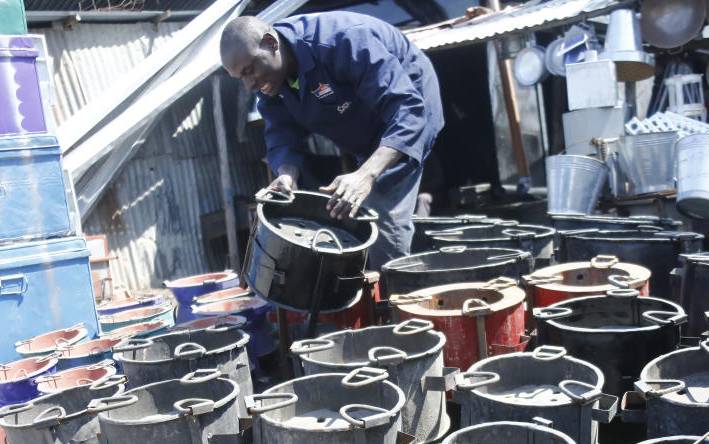×
The Standard e-Paper
Kenya’s Boldest Voice

Stephen Muhoma goes through his Jua Kali work at Bama Market in Nakuru on June 13, 2019. He said that the cost of material is affecting the JuaKali sector in the town since it shot up in the last few years making it difficult for them. [Kipsang Joseph, Standard]
Local Jua Kali artisans who have not been trained in schools will now be graded and awarded certificates.